MercoPress. South Atlantic News Agency
Tag: mad cow disease
-
Tuesday, June 13th 2023 - 01:36 UTC
Brazilian beef stranded in Chinese ports triggers a Lula phone call to Xi
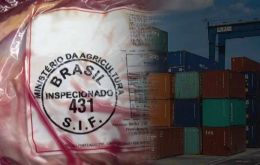
Since some 70,000 tons of Brazilian beef are stranded at Chinese ports awaiting an official clearance resolution from Beijing since the identification of an atypical case of Bovine Spongiform Encephalopathy (BSE), known as “mad cow disease” in Brazil, President Lula da Silva revealed he contacted his counterpart Xi Jinping on Juke 6, to try and overcome the situation.
-
Friday, September 3rd 2021 - 09:11 UTC
Suspected case of “mad cow” in central Brazil; live cattle prices plummet
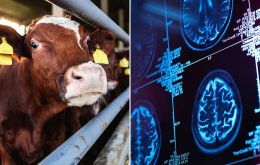
The Brazilian Ministry of Agriculture confirmed it was investigating a suspected case of “mad cow” in the central state of Minas Gerais. The situation dating to August 31 caused abattoirs and meatpacking plants to stop the purchase of cattle with an immediate downfall in prices, expected to continue until the situation is cleared.
-
Tuesday, June 4th 2019 - 09:40 UTC
Brazil halts exports of beef: case of “atypical” mad cow disease
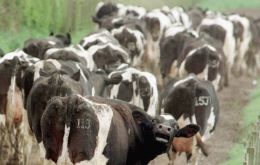
Brazil has temporarily halted beef exports to China following an atypical case of mad cow disease in leading farm state Mato Grosso, the agriculture ministry said on Monday. China, Brazil's largest beef importer by sales, spent US$1.5 billion on Brazilian beef last year, totalling 322,400 tons or almost 20% of all shipments, according to local beef exporters association Abiec.
-
Wednesday, February 18th 2015 - 19:28 UTC
Canada identifies origin of mad cow disease case; Korea bans Canadian beef

The Canadian Cattlemen’s Association says a beef breeding cow found with mad cow disease on an Alberta farm was born in the province at a different farm. Association spokesman John Masswohl says the Canadian Food Inspection Agency identified the birth farm. It is the first case reported since 2011. South Korea announced it was banning Canadian beef.
-
Friday, April 25th 2014 - 05:31 UTC
Brazil investigating potential case of atypical mad cow disease in Matto Grosso
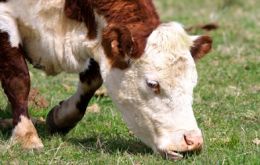
Brazil is investigating a potential case of atypical mad cow disease, the agriculture ministry said on Thursday, just over a year after several countries banned Brazilian beef imports when a similar case of the disease was confirmed.
-
Wednesday, December 26th 2012 - 07:25 UTC
Brazil warns countries that have banned imports of beef because of atypical BSE

The world’s top beef exporter, Brazil, will give countries that curbed imports of its beef after a case of mad cow disease until March to drop the measures or it will file a complaint at the World Trade Organization, farm ministry officials said.
-
Wednesday, December 19th 2012 - 01:38 UTC
Saudi Arabia joins Japan and China, suspends imports of Brazilian beef
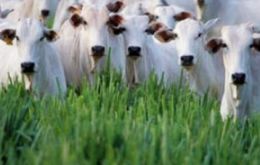
Saudi Arabia has suspended imports of Brazilian beef, Brazil’s agriculture ministry said Tuesday, and became the largest country to stop purchases after confirmation of a 2010 case of atypical mad cow disease.
